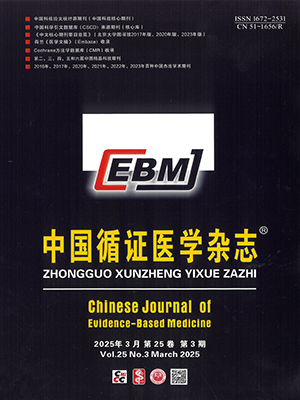Objective To determine whether Xingnaojing injection can improve functional outcome without causing harm in patients with intracerebral hemorrhage.
Methods We searched the electronic bibl iographic databases: Cochrane Central Register of Controlled Trials(CENTRAL, Issue 3, 2007), MEDLINE (1996 to November 2007),EMBASE (1984 to November 2007) and China Biological Medicine Database (1978 to November 2007). We also did handsearching to identify other publ ished and unpubl ished data. Data were extracted and evaluated by two reviewers independently with a designed extraction form. The Cochrane Collaboration’s RevMan 4.2.10 was used for data analysis.
Results Thirteen randomized trials involving 1 035 patients were included. The number of people who had died or were dependent at the end of long-term follow-up (at least 3 months) were reported in three trials. Eleven trials measured neurological deficit at the end of treatment. No severe adverse events were reported. The results of meta-analyses indicated that Xingnaojing injection might decrease the number of death or dependency compared to the control group, but the difference was not statistically significant (Peto-OR 0.57, 95%CI 0.32 to 1.01); and Xingnaojing injection were associated with a significant improvement in neurological deficit (Peto-OR 3.70, 95%CI 2.67 to 5.13).
Conclusion The evidence currently available showed that Xingnaojing injection may decrease the risk of death or dependency, and can also reduce neurological deficit in patients with intracerebral hemorrhage. However, more high-qual ity trials are needed.
Citation: LIN Sen,WU Bo,LIU Ming. Xingnaojing Injection for Intracerebral Hemorrhage: A Systematic Review. Chinese Journal of Evidence-Based Medicine, 2008, 08(2): 93-96. doi: 10.7507/1672-2531.20080024 Copy
Copyright © the editorial department of Chinese Journal of Evidence-Based Medicine of West China Medical Publisher. All rights reserved




